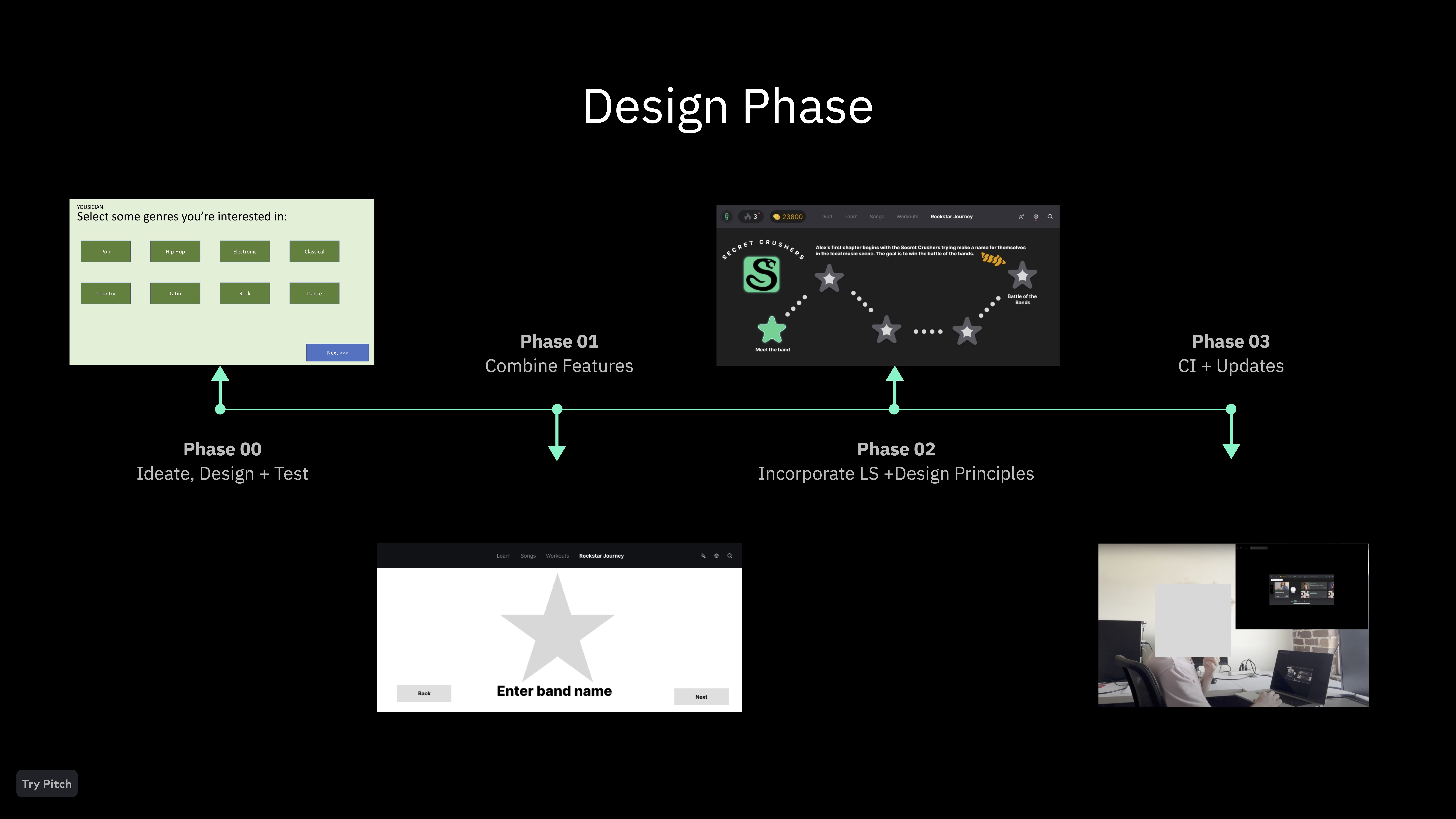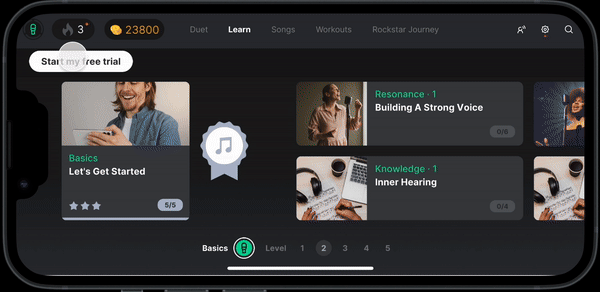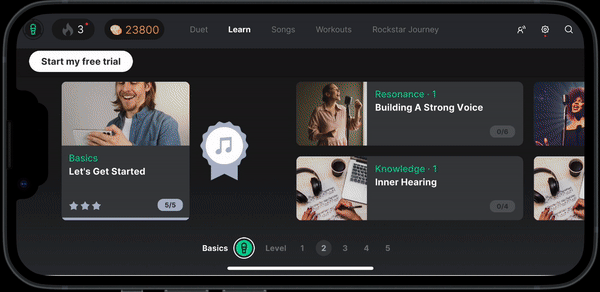
Redesign Yousician: Promoting Students' Motivations Through Learning Science Strategies
Learning Science Technology,
UI/UX Design,
Interactive Prototyping
Yousician is an Educational music app that allows users to learn to play guitar, bass, piano, ukulele, or singing. However, through Contextual Inquiry with the actural users, we discovered some problems with the orginal App, including the Lack of Engagement, Lack of Authority during the learning process, not providing enough feedback about practice, and very few social elements that keep users connected to their friends.
According to learning science theories, Motivation is a condition that activates and sustains behavior toward a goal.
Students who are motivated tend to be engaged, persist longer, have better learning outcomes. In this project, our group emphasized on adopting strategies that promote students' motivation to augment the learning process.


Through contextual inquiry and affinity diagram, we analyzed the existing challenges realted to users' motivation in the app and possible solutions
to promote the process.
We further narrow down the features we want to implement into five:
- Onboarding & Spotify Connect, where the app assesses users' current skill, determines users' motivation, and connects users' Spotify account to customize the music they'll practice.
- Rockstar Mode, which offers users a storyline that chronicles the life of an aspiring musician, from humble beginnings in a garage band to achieving global fame on the biggest stages
- Improved Feedback that is provided to the user after their practice indicating what and how to improve.
- In-app Rewards, where users can yse scores obtained from each training to unlock new songs, decorations for Rockstar Mode, and extend membership.
- Duet + Battle, where users connect with friends or community members and duet/battle with them as a way to increase communicty engagement.
Specificall, the In-app Rewards feature mainly focuses on how reward can be effectively promote both intrinsic and extrinsic motivation.
The following Learning Science Principles are implemented:
- Extrinsic Motivation: Adopt secondary reinforcers. Consider creating a token economy where tokens can be exchanged for rewards.
- Intrinsic Motivation: Connect secondary reinforcers with intrinsic motivation where users can choose a song to practice, which is connected to their goals for using the app.
- Personal agency: learners should have some flexibility in choosing the content and the order. In this feature, learners can choose to unlock different songs based on their preference, giving users more personal agency.

We have incorporated several iterations of user evaluation and redesign into the process. One user commented, "I want more knowledge about my performance, how I receive my score, and where my score is spent." In response, we implemented a credit history page. This feature allows users to see where they earned their credits and view monthly trends, helping them track their practice progress more effectively.
Another user commented that "The entrance could be more flexible, perhaps integrated into the flow of a singing experience." In response, we reorganized the way users can utilize their credits. Now, instead of merely accumulating credit scores, users can select songs to unlock and practice from the "Song" tab, create a list of their favorite songs and singers, and search for new music. This provides a more flexible way for users to interact with the system and makes the overall experience feel more natural.


Information
Group Member: Donna Fintzi, Anish Jaisinghani, Yixuan Li, Binta Moncur, Dhruv Pargai